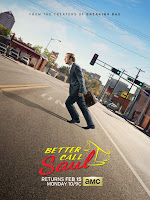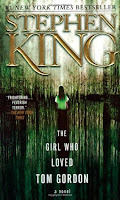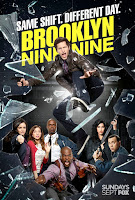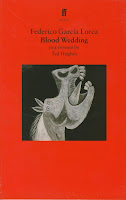I'm sure nobody but boring bean-counters like me cares, but this post marks the 100th post by this blog! Woot woot! So in celebration of that milestone, I thought I'd do something fun. And because I'm a weird, boring bean-counter who likes quantifying art into meaningless lists, I make a list of my 100 favorite movies. Yay!
Actually, this turned out to be a lot harder than I thought it would be. Apparently, I have a lot of favorite movies. My apologies to the many, many movies left on the cutting-room floor. In order to avoid making this list even more difficult than it already was, I didn't really do any sort of ranking here; the movies are just listed alphabetically by title (with the release year and director[s] in parentheses off to the side).
Of course, I make no claims to any of these movies being the "best" or anything like that. I just happen to really dig them. My intention here is, if anyone's interested, to start a conversation where everyone shares their favorite movies. I'm seriously much more interested in hearing y'all's favorite movies than I am mine. So please! Share! Tell me how bad my taste is! Tell me what movies you would have picked instead! That's the whole point of list-making.
For those who are interested, numbers:
- The most represented letters of the alphabet are S and T, with 11 films each.
- The most represented director is Ingmar Bergman, with 4 films to his name.
- The most represented decade is, not surprisingly, given my age, 2000-2009, with 21 films.
The List
Aguirre, the Wrath of God (1972, Werner Herzog)
Airplane! (1980, Jim Abrahams and David & Jerry Zucker)
Aladdin (1992, Robert Clements and John Musker)
Alien (1979, Ridley Scott)
Annie Hall (1977, Woody Allen)
The Apartment (1960, Billy Wilder)
Babe (1995, Chris Noonan)
Barton Fink (1991, Joel & Ethan Coen)
Before Sunset (2004, Richard Linklater)
Being John Malkovich (1999, Spike Jonze)
Bill and Ted's Excellent Adventure (1989, Stephen Herek)
The Blair Witch Project (1999, Daniel Myrick and Eduardo Sánchez)
Cabin in the Woods (2012, Drew Goddard)
Casablanca (1942, Michael Curtiz)
Certified Copy (2010, Abbas Kiarostami)
The Circus (1928, Charles Chaplin)
Citizen Kane (1941, Orson Welles)
City of God (2002, Fernando Meirelles and Kátia Lund)
The Conversation (1974, Francis Ford Coppola)
Coraline (2009, Henry Selick)
Day of Wrath (1943, Carl Theodor Dreyer)
Days of Heaven (1978, Terrence Malick)
Do the Right Thing (1989, Spike Lee)
Donnie Darko (2001, Richard Kelly)
Dr. Strangelove or: How I Learned to Stop Worrying and Love the Bomb (1964, Stanley Kubrick)
The Emperor's New Groove (2000, Mark Dindal)
E.T. the Extra-Terrestrial (1982, Steven Spielberg)
Eternal Sunshine of the Spotless Mind (2004, Michel Gondry)
Evil Dead 2: Dead by Dawn (1987, Sam Raimi)
Eyes Wide Shut (1999, Stanley Kubrick)
Fantasia (1940, So many people)
Frankenstein (1931, James Whale)
The General (1926, Clyde Bruckman and Buster Keaton)
The Good, the Bad and the Ugly (1966, Sergio Leone)
Goodfellas (1990, Martin Scorsese)
Groundhog Day (1993, Harold Ramis)
His Girl Friday (1940, Howard Hawks)
The House of the Devil (2009, Ti West)
The Illusionist (2010, Sylvain Chomet)
Inglourious Basterds (2009, Quentin Tarantino)
The Iron Giant (1999, Brad Bird)
It's Such a Beautiful Day (2012, Don Hertzfeldt)
It's a Wonderful Life (1946, Frank Capra)
Juno (2007, Jason Reitman)
Kicking and Screaming (1995, Noah Baumbach)
The King of Comedy (1983, Martin Scorsese)
The Lord of the Rings (2001-2003, Peter Jackson)
M (1931, Fritz Lang)
The Magician (1958, Ingmar Bergman)
Magnolia (1999, Paul Thomas Anderson)
Make Way for Tomorrow (1937, Leo McCarey)
Man with a Movie Camera (1929, Dziga Vertov)
The Mirror (1975, Andrei Tarkovsky)
Mission Impossible: Ghost Protocol (2011, Brad Bird)
Monty Python's Life of Brian (1979, Terry Jones)
Modern Times (1936, Charles Chaplin)
Network (1976, Sidney Lumet)
The Night of the Hunter (1955, Charles Laughton)
O Brother, Where Art Thou? (2000, Joel & Ethan Coen)
Pan's Labyrinth (2006, Guillermo del Toro)
Paper Moon (1973, Peter Bogdanovich)
ParaNorman (2012, Sam Fell and Chris Butler)
Persona (1966, Ingmar Bergman)
The Piano (1993, Jane Campion)
Pinocchio (1940, A whole bunch of folks)
The Prestige (2006, Christopher Nolan)
Psycho (1960, Alfred Hitchcock)
Pulp Fiction (1994, Quentin Tarantino)
The Purple Rose of Cairo (1985, Woody Allen)
Radio Days (1987, Woody Allen)
Raiders of the Lost Ark (1981, Steven Spielberg)
Rear Window (1954, Alfred Hitchcock)
Repulsion (1965, Roman Polanski)
The Secret of Kells (2009, Tomm Moore and Nora Twomey)
A Separation (2011, Asghar Farhadi)
Sherlock Jr. (1924, Buster Keaton)
A Shot in the Dark (1964, Blake Edwards)
Sleeping Beauty (1959, A lot of folks)
The Social Network (2010, David Fincher)
Some Like It Hot (1959, Billy Wilder)
Spider-Man 2 (2004, Sam Raimi)
The Star Wars Trilogy (1977, 1980, 1983; George Lucas, Irvin Kershner, Richard Marquand [respectively])
Sunrise: A Song of Two Humans (1927, F. W. Murnau)
Sunset Boulevard (1950, Billy Wilder)
The Tale of the Princess Kaguya (2013, Isao Takahata)
Terminator 2: Judgement Day (1991, James Cameron)
The Texas Chainsaw Massacre (1974, Tobe Hooper)
There Will Be Blood (2007, Paul Thomas Anderson)
The Thing (1982, John Carpenter)
Through a Glass Darkly (1961, Ingmar Bergman)
Toy Story (1995, John Lasseter)
The Treasure of the Sierra Madre (1948, John Huston)
Trouble in Paradise (1932, Ernst Lubitsch)
25th Hour (2002, Spike Lee)
Twin Peaks: Fire Walk With Me (1992, David Lynch)
Up (2009, Peter Docter)
WALL-E (2008, Andrew Stanton)
When Harry Met Sally... (1989, Rob Reiner)
Winter Light (1963, Ingmar Bergman)
The Wizard of Oz (1939, Victor Fleming)



















